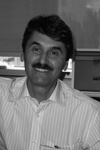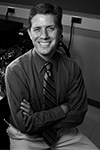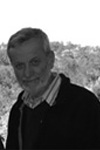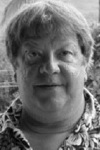2016 new trends in advanced fluorescence techniques
jan 25 - 29, 2016 | concepción, chileThis course will consist of theoretical lectures, a hands-on laboratory course and computer-based training on data analysis and simulations. It will focus on the basics and advanced concepts of fluorescence spectroscopy techniques. The laboratory course is designed for students, researchers and industrial scientists who intend to extend their knowledge of fluorescence spectroscopy techniques.
Key scientists in the field will deliver theoretical lectures. The lectures will be complemented by the direct utilization of fluorescence instrumentation. Topics addressed in this course include:
- Basic Definitions and Principles of Fluorescence
- Basic Spectral Properties
- Perrin-Jablonski Diagram and Stokes' shift
- Excitation and Emission Spectra
- Polarization/Anisotropy
- Fluorescence Lifetime
- FRET: Fӧrster Resonance Energy Transfer
- Confocal and 2-Photon Fluorescence Microscopy
- Instrumentation
- Light Sources: One-photon and Multi-photon Excitation
- Advantages and Disadvantages
- FCS (Fluorescence Correlation Spectroscopy)
- Basic Principles of FCS
- Autocorrelation and PCH Analysis
- FCS in Solutions and in Cells
- RICS (Raster Image Correlation Spectroscopy)
- Basic Concepts
- RICS in Solutions and Cells
- N&B (Number and Brightness Analysis)
- Basic Concepts
- N&B in Solutions and Cells
- FLIM (Fluorescence Lifetime Microscopy)
- The Phasor Approach
- Applications
- Particle Tracking
- Spectral Phasor
- Practical Use of Instrumentation
- Overview of Fluorescence Probes and Labeling of Biomolecules - in vitro and in cells
Theoretical classes are open but registration is needed. The hands-on laboratory course is limited to 20 participants.
Sponsored by:
Tentative Agenda
April 7
Prof. Stephen A. Boppart
Dr. Beniamino Barbieri
Prof. David M. Jameson
Prof. David M. Jameson
April 8
FRET: In Vitro and In Vivo Fluorescence Probes
Prof. David M. Jameson
Prof. David M. Jameson
Prof. Enrico Gratton
April 9
Prof. Enrico Gratton
Prof. Enrico Gratton
Prof. Richard Day
April 10
and Tissue Dynamics in Skin
Prof. Stephen A. Boppart
Prof. Enrico Gratton
Prof. Taekjip Ha
Instructors

Dr. Beniamino Barbieri
ISS, Inc. | President | 1602 Newton Dr. | Champaign, IL 61822 | Tel: 217-359-8681

Prof. Stephen A. Boppart
Beckman Institute for Advanced Science and Technology | University of Illinois at Urbana-Champaign | 405 North Mathews Avenue | Urbana, IL 61801 | Tel: (217) 333-8598

Prof. Richard Day
Department of Cellular & Integrative Physiology | Indiana University School of Medicine | 635 Barnhill Drive, Room 333 | Indianapolis, IN 46202-5120 | USA

Prof. Enrico Gratton
University of California, Irvine | Department of Biomedical Engineering | Irvine, CA 92697-2715 | USA | Tel: 949-824-2674

Prof. Taekjip Ha
Loomis Laboratory Rm 133 | University of Illinois at Urbana-Champaign | 1110 West Green Street | Urbana, IL 61801 | Tel: (217) 265-0717

Prof. David M. Jameson
University of Hawaii at Manoa | Department of Cell and Molecular Biology | John A. Burns School of Medicine | Honolulu, HI 96822 | USA | Tel: 808-956-5034 | Website
Travel
The New Trends in Advanced Fluorescence Techniques course will be held at:
Facultad de Ciencias Quimicas
Edmundo Larenas 129
Concepción, Chile
Arrival Information
International flights arrive at Arturo Merino Benitez Airport located at the Chilean capital, Santiago. The city of Concepción is located 499.8 km (310.6 miles) south of Santiago, and you can go by bus or plane. Currency can be exchanged at the Santiago airport. Teller machines are available and work with most major credit cards. Public phones are either coin- or card-operated. Cards are available at the airport.
From Santiago to Concepción
By airplane
There are daily flights from Arturo Merino Benitez airport to Concepción (Carriel Sur Airport). Flight time is one hour.
By bus
From Santiago there are buses every hour departing the Alameda or Santiago terminal. Approximate time of the trip is nine hours. Buses arrive in Concepción to either Collao or Camilo Henriquez terminal.
Transportation in the city of Concepción
Taxi and airport transfers are the only transportation from the Concepción airport (Carriel Sur Airport) to the center of the city. Prices are around 8000 Chilean pesos for the taxis and around 6000 for the shared transfer. The trip from airport to the University campus is approximately 45 minutes depending on traffic. Once in the city of Concepción, you can use taxis and buses everywhere.
Accommodations
There are several hotels, bed & breakfasts and hostels close to the university campus. We have not established a group rate with them. We recommend any of the following.
Hotel Apart Aurelio
Salas 135. Concepción
http://www.aureliohotel.cl/
Hotel Araucano
Caupolicán No. 521, Concepción
http://www.hotelaraucano.cl/
Hotel Don Matias
Colo Colo 155, Concepción
http://www.aparthoteldonmatias.cl/
Hostal B&B
Calle Ongolmo 62, Concepción
http://www.hostalboutiqueconcepcion.com/
Weather
Chile and the city of Concepción are located in the southern hemisphere, so seasons are opposite of the northern hemisphere. Concepción has a Mediterranean climate with dry, warm summers and mild winters. Temperatures in Concepción during the month of January are usually between 17°C and 23°C (62°F and 73°F.
Register
Registration is closed for this event.